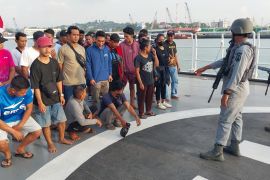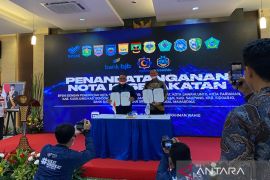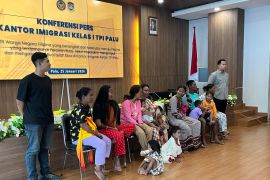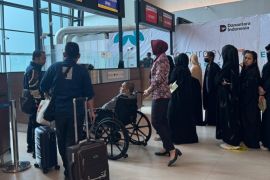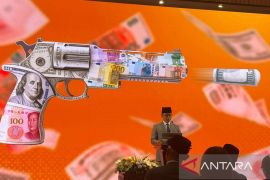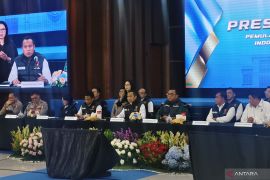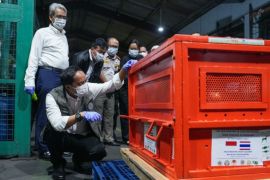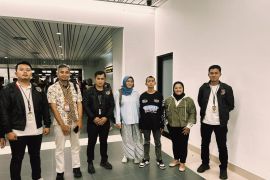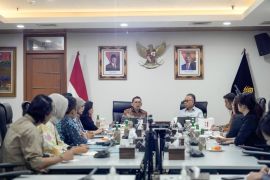Their families in their hometowns tend to see them as heroes who will return home with money for paying off crushing debt.
But, in the eyes of the law, they hold the status of illegal migrant workers (PMIs), which makes them vulnerable to being detained and sentenced by the authorities of the countries they enter for work.
Based on data provided by the National Commission on Human Rights (Komnas HAM), as of Thursday (July 13, 2023), a total of 2,959 Indonesian citizens are facing indefinite detention in Malaysia, despite completing their sentences. The figure comprises 2,160 men, 697 women, and 102 underage children.
Though they are ready to be deported, instead of returning to their motherland, they are stuck in Malaysian immigration detention depots, which serve as transit points, due to unclear repatriation mechanisms.
This is a complex issue not just for the migrants, but also policy makers.
In addition to thinking of legal aspects and repatriation financing mechanisms, policy makers need to maintain Indonesia-Malaysia relations, find a solution to ensure the fulfillment of the illegal workers' basic rights, and most importantly, formulate measures to prevent similar events from recurring.
Preventive solutions are of the essence to break the vicious cycle of illegal migrant workers' detention and deportation.
Related news: Jokowi visits Malaysia to discuss border issues, worker protection
Related news: Bali tightens departure of migrant worker to prevent human trafficking
Problem of overcrowding
According to a commissioner for Komnas HAM, Anis Hidayah, the number of Indonesians in detention depots in Malaysia exceeds their capacity.
This issue is impeding efforts to fulfill the workers' rights, including the right to receive medical services and appropriate sanitation.
The Indonesian Foreign Affairs Ministry has been coordinating with the Malaysian authorities regarding the issue. As a result, services at a detention depot located in Sabah State have started to be improved.
The ministry and Komhas HAM have extended Indonesia's appreciation to Malaysia for the improvement efforts and expressed the hope that depots in other regions will also take similar measures.
Apart from human rights fulfillment, the commission is also drawing attention to the fact that 102 underage children are among those being detained in depots crowded with adults. Children their age are supposed to be pursuing education and living their lives freely with their parents.
The government has continued to fight for the children's rights and interest fulfillment, including by prioritizing them in the repatriation process.
Earlier on April 13, the Foreign Affairs Ministry made all-out efforts to repatriate 154 vulnerable Indonesian citizens and workers who were previously detained in detention depots and a shelter at the Indonesian Embassy in Kuala Lumpur.
The nationals were brought back home to Indonesia onboard a Garuda Indonesia airplane and arrived at Soekarno-Hatta International Airport, Banten, the same day.
Repatriation quandary
Judha Nugraha, the ministry's Director of Protection for Indonesian Citizens and Legal Entities, outlined two government strategies for illegal migrant workers repatriation.
The first is a short-term strategy, which involves citizen repatriation on chartered airplanes or ships. The ministry has repeatedly opted for this strategy, including when it was repatriating vulnerable groups from Malaysia and over 3 thousand illegal workers from Saudi Arabia.
However, the strategy has not helped break the cycle. Government-initiated repatriation missions, which drain the state's budget collected from taxes, could also invite negative perceptions from the public.
Dependence on such a strategy could drive people wishing to become migrant workers to think that they will still be able to return home even if they are detained, thanks to government-funded repatriation.
Such a perspective, in turn, could cause many more people to recklessly smuggle themselves abroad to work as illegal workers, believing that the government will come rescue them and finance their repatriation regardless.
Hence, the government has not decided to bring back all the Indonesians held at detention depots, as it is fully aware that using such a strategy could prove counterproductive in the long term.
The Indonesian government has clearly foreseen that the issue will repeat itself if no concrete measures are taken to root out the problem.
As part of a more sustainable and long-term approach, the ministry is currently collaborating with relevant stakeholders, including the Malaysian authorities, to formulate a better repatriation mechanism for Indonesians, especially illegal PMIs.
The government is aiming to adopt an alternative strategy that is long-term in nature by urging illegal PMIs to pay their own repatriation costs.
The objectives of such a strategy are to prevent the excessive number of detainees at depots and save the nationals from receiving doubled sentences.
The government will come up with a clearer repatriation financing mechanism as well as strengthen coordination to monitor the repatriation flow.
It is now clear that ministries and agencies in Indonesia need to work in synergy in the efforts to eradicate various modes of human trafficking and smuggling that keep feeding the illegal migrant worker cycle.
It should be noted that the government is fully supportive of the right of every citizen to go overseas in pursuit of a better income and life.
That being said, the government is striving to protect the sons and daughters of the nation from likely problems abroad. It has been constantly reminding citizens to seek employment abroad through lawful and legal means so that they can work safely, without the fear of being detained.
All-out efforts have been made by the government for the sake of people's safety and security. Now, it is the people's turn to synchronize their perspective with the government by abiding by the applicable rules and migrating legally.
Related news: BP2MI urges victims of human trafficking to become campaigners
Related news: Minister sends off 100 SPSK migrant workers to Saudi Arabia
Translator: Putu Indah, Tegar Nurfitra
Editor: Sri Haryati
Copyright © ANTARA 2023


